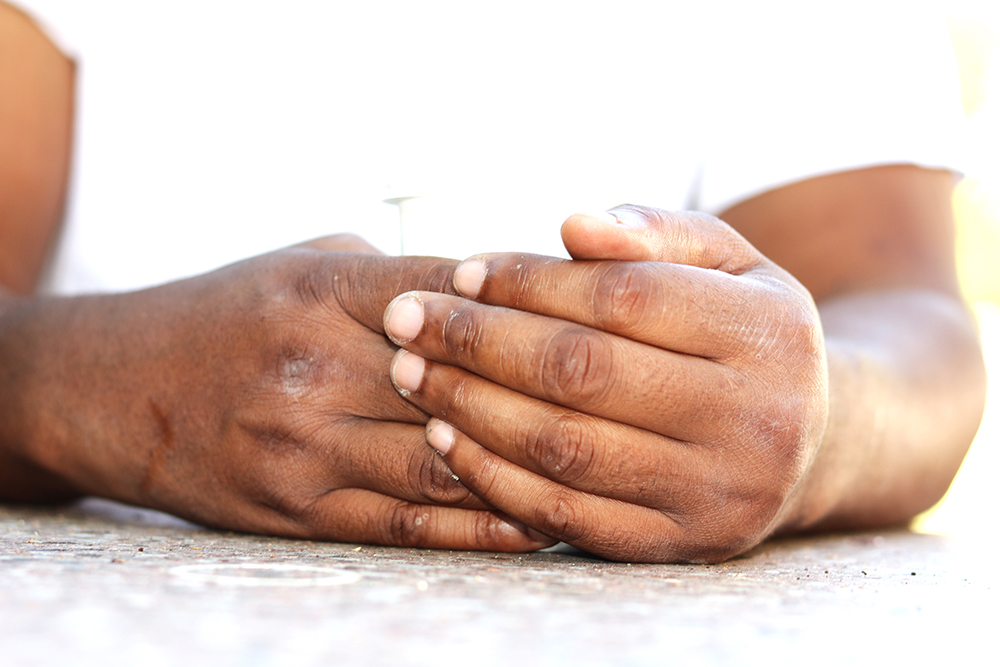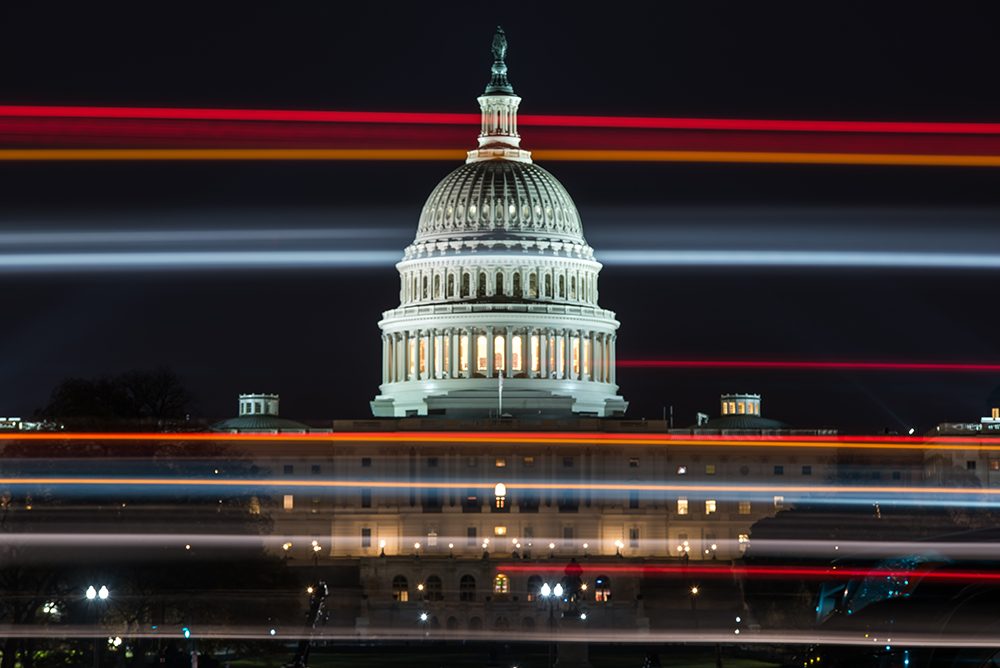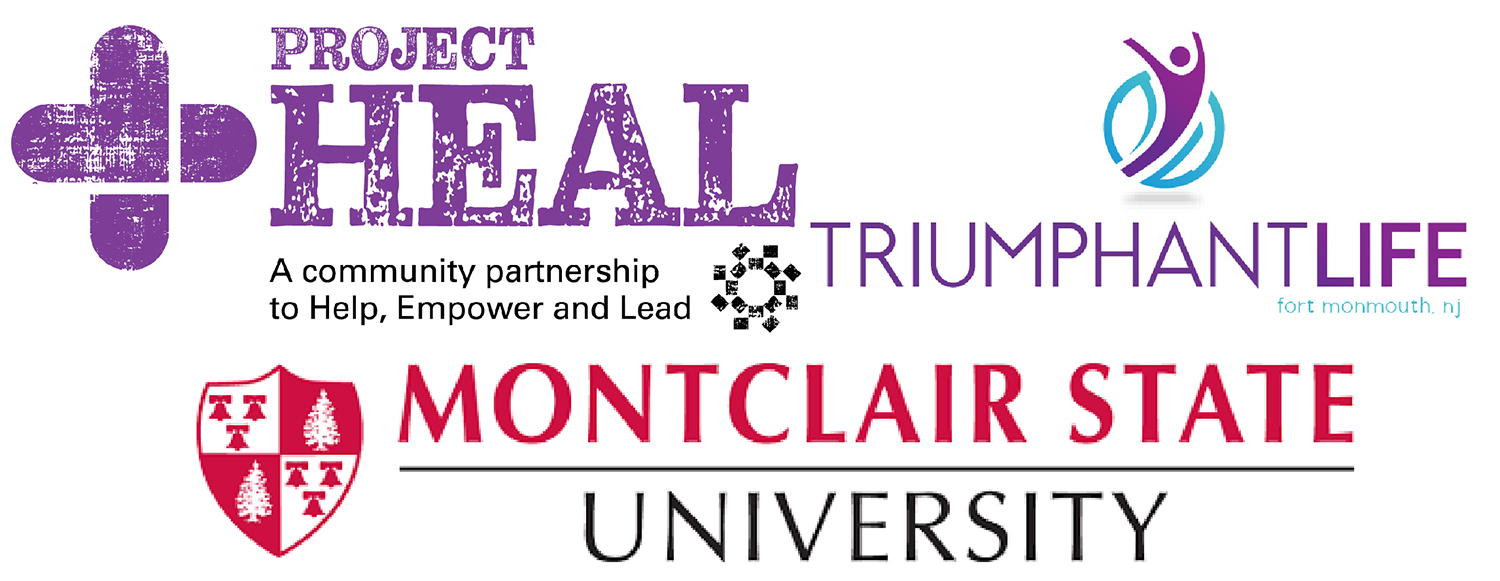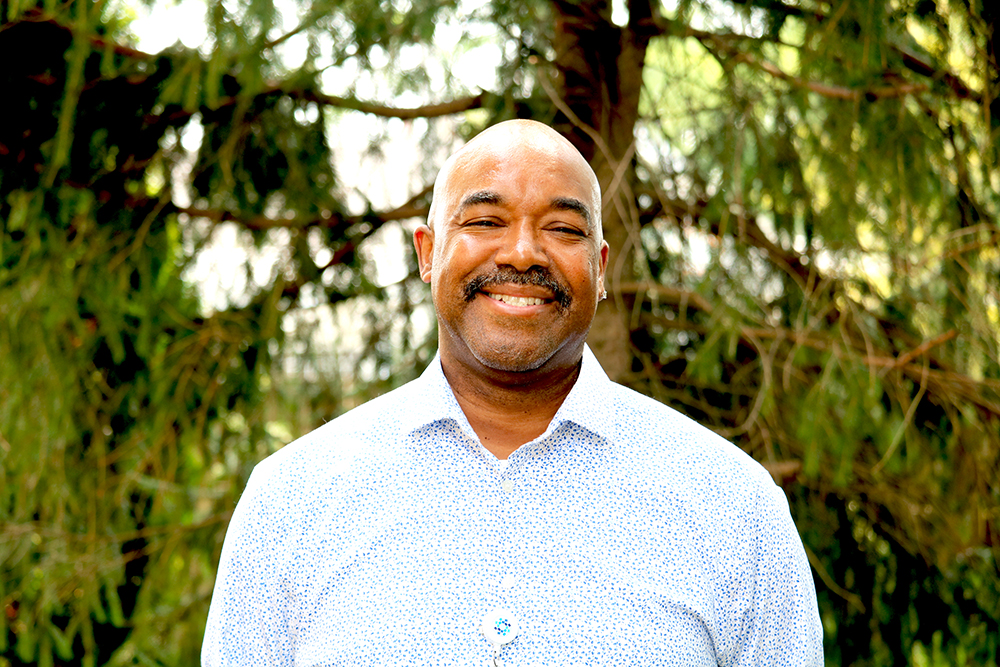August 2022 Newsletter - Latest News, Updates, & Stories
From Prison to Promise
 Fort Greene, a neighborhood in Brooklyn, New York, is known for its rich, cultural history. It is also “home” to a few famous names like Mos Def, Spike Lee and Michael Jordan. Not unlike many neighborhoods in New York City, however, Fort Greene was hit hard by the crack epidemic of the 1980’s. As we have come to learn, drugs impact entire communities (not just the individuals who use them) and increase rates of crime, poverty and gang activity.
“2Che,” a Project HEAL client who chose to use his street name to protect his identity, reflected on how his childhood in Fort Greene drastically impacted the trajectory of his life. He recalled, “I was always taught to duck when you would see somebody with a gun. I remember seeing a guy running with a gun, hearing a pop and one of my friends getting shot.” Unfortunately, 2Che’s friend was seriously injured, suffering traumatic brain injuries. This left a lasting impact on 2Che.
Fort Greene, a neighborhood in Brooklyn, New York, is known for its rich, cultural history. It is also “home” to a few famous names like Mos Def, Spike Lee and Michael Jordan. Not unlike many neighborhoods in New York City, however, Fort Greene was hit hard by the crack epidemic of the 1980’s. As we have come to learn, drugs impact entire communities (not just the individuals who use them) and increase rates of crime, poverty and gang activity.
“2Che,” a Project HEAL client who chose to use his street name to protect his identity, reflected on how his childhood in Fort Greene drastically impacted the trajectory of his life. He recalled, “I was always taught to duck when you would see somebody with a gun. I remember seeing a guy running with a gun, hearing a pop and one of my friends getting shot.” Unfortunately, 2Che’s friend was seriously injured, suffering traumatic brain injuries. This left a lasting impact on 2Che.
2Che was born in 1979 as one of five siblings. While 2Che felt the shared love between him and his father, he also remembers his father as a “rolling stone” that often struggled to find balance between his family life and street life. “My dad died when I was 14 years old so I've been on my own as far as trying to figure out life as a man,” said 2Che. “I didn't have that teacher there. He wasn't there. He was dead.” Even before his father’s passing, 2Che started selling drugs at 11 years old, getting into countless fights and eventually became drawn toward gang life for a sense of safety and belonging.
2Che described an experience at 17 years old when he arrived at a house party and remembered many people telling him that he was “cool” and suggested that he should come “blood” with them. 2Che clarified that the term “blood” was in reference to gang activity, specifically related to joining the Bloods street gang. At that time, the Bloods were predominantly recognized as a West Coast gang based mainly in California. The street gang did not become well-established in the New York City area until the early 1990’s through inmates housed at Rikers Island. 2Che stated, “As an initiation, I had to run up to a Hispanic man and cut his face with a razor. After that I was a Blood. I didn't have too many friends, so being accepted into something made me feel good.” 2Che admitted that his impressionable age and the promise of protection within the neighborhood persuaded him to join. Unfortunately, it was a decision that led to irreversible consequences.


2Che’s gang markings that were made to show commitment to The Bloods
Shortly after celebrating his 19th birthday, 2Che was convicted of assault, directly related to his gang affiliation, and spent the next two years in Attica State Prison. Upon his release, 2Che recognized a strong desire to change his mindset and find a way out of his neighborhood and gang life. However, resources for those reintegrating into mainstream society then were even more scarce than they are today. 2Che reflects, “Leaving prison my first time, I wasn't fully mature or fully equipped to get a job. When you apply for a job you have to prove that you are an asset, not a liability.” 2Che states he went on to cycle in and out of the prison system, serving time in some of New York’s toughest prisons. At 28 years old, 2Che had grown exhausted of this lifestyle and decided it was time to make a change. 2Che was able to move out of his childhood neighborhood, get linked with temp agencies to find legal and legitimate means of income and even enrolled in community college.
For six years, 2Che stayed out of prison- his longest run as a free man. Unfortunately, 2Che got mixed up with the wrong person and found himself back in prison from 2015-2021. “My last bid, that was it. That was enough,” said 2Che. “Trying to survive six years in prison, it was the last straw.” Shortly after his release, 2Che was linked to New Jersey Reentry Corporation (NJRC), which began operating in 2014. NJRC supports individuals with a criminal history to become productive and successful members of society (njreentry.org). 2Che was referred to Project HEAL through NJRC to address the specific needs of someone who has both directly and indirectly experienced violence. Project HEAL’s specialized, trauma-informed approach provided the support 2Che needed to address maladaptive thought patterns and behaviors that can present after long-term exposure to (or threats of) violence, with the hope of preventing recidivism.

At Project HEAL, 2Che engaged in mental health counseling to improve his conflict management skills, understand the benefits/consequences between street life and legal employment and set positive life goals. “With my counselor, I've really been working on conflict resolution. It's definitely been helpful,” said 2Che. “I have a tendency to get into fights, so that's the kind of stuff we're working on. It's been a pleasure coming here.” 2Che and his counselor have explored how trauma-related symptoms have impacted his life, specifically hypervigilance and a mistrust of others. At the same time, Project HEAL's Case Manager supported 2Che by helping navigate affordable housing options, making referrals for legal needs and applying for Victims of Crime Compensation. 2Che ends with, “It's been a struggle but I'm the type of person that I don't give up. I'm going to keep selling myself as an asset and not a liability.” 2Che hopes that with the continued help of Project HEAL, he can re-enroll in school and explore the field of audio engineering, with a long-term goal to start his own business.
Project HEAL Joins Juneteenth Celebrations

Project HEAL team members Tracy Jones and Randy Scales
Junteenth marks the day in 1865 when federal troops arrived in Texas to take control of the state and ensure that all enslaved people, specifically people of color, were free. This occurred two years after the signing of the Emancipation Proclamation and became the official end to slavery in this country. While Juneteenth was officially declared a national holiday in 2021, it has been celebrated by communities for many years.
Pastor Samaj Vanzant of 2nd Street Baptist Church has celebrated Juneteenth with his congregation for over seven years. Lately, the celebrations have grown into a community event that people look forward to. “It wasn't until about three years ago that the celebrations really popped and blossomed between Neptune and Asbury,” said Pastor Samaj. “Our Juneteenth celebration was the first in Monmouth County, now you're seeing other towns like Red Bank and Long Branch holding events.”

Project HEAL team members Lisa McDermott and Chris Kuhn
Project HEAL team members joined other community organizations, local merchants and state agencies in Neptune Township and Asbury Park to celebrate this important day and build meaningful relationships to expand resources for survivors of violence. The events had live music, raffles, and multiple activities for all to enjoy, including a rock climbing wall.
Pastor Samaj hopes that the celebrations continue to grow to promote Black excellence, while contributing to the revitalization of Asbury Park's West Side. When asked how he could make the event bigger and better, Pastor Samaj said, “I would love to bring in national artists to take it up a notch. That would draw people to the purpose of the day.”
Bipartisan Safer Communities Act Could Boost Violence Intervention Efforts

In June, Congress passed the most expansive gun control legislation in the past 40 years, “The Bipartisan Safer Communities Act.” With President Biden quickly signing the bill into law, there are some provisions directly related to the work of Project HEAL, and can help make a difference in the fight against community violence, including $250 million in funding for community-based violence prevention initiatives. This wide ranging law also includes investment in children and family mental health services, increased funding for schools, and protections for victims of domestic violence.
N.J. Senator Cory Booker was one of twenty U.S. Senators who reached a deal on the initial framework of this now-law. “Quite simply, this legislation will save lives,” Booker said in a public statement. “This is only the beginning of our efforts to get to where we want to go: An America with universal background checks, a ban on assault weapons and high capacity magazines, and an expansion of community violence interruption programs.”
The law is a welcome sight for those invested in the work, however more work is required to ensure every community is safe. “Every community member should be able to live, work and play in their communities free from the threat of gun violence,” said Lisa Mcdermott, Clinical Program Manager for Project HEAL. “Our team will utilize any legislation passed to help continue the fight against community violence and help the individuals affected.” With this support, and the support of Hackensack Meridian Health, The Project HEAL team hopes to extend services further into the community and advocate for safer communities and a safer future going forward.
Hackensack Meridian Health to Launch New Community-Based Program

Earlier this year, Hackensack Meridian Health was awarded a $500,000 grant from New Jersey’s Office of the Attorney General to expand services further into the community to break the cycle of violence in Monmouth County. Project HEAL has partnered with Triumphant Life Church and Montclair State University to launch Elevate, a community-based initiative that will coordinate with school districts and other community partners to identify youth at-risk of violence. The program will provide support, mentoring, counseling and other resources for youth to engage in healthy alternatives to violence.
Elevate will employ Peer Specialists, young individuals that live in the same communities they serve and have been personally impacted by violence, to make meaningful connections and instill hope that youth can make positive changes in their lives to achieve their goals. They will act as a peer mentor and model positive productive behavior. Peer Specialists will connect youth to positive activities such as job training, childcare and parenting classes, music lessons, sports sponsorships, SAT prep courses, and healthy lifestyle support. Clinical services will also be available in the form of individual, group and/or family counseling and will use an array of evidence-based treatment modalities for trauma and/or trauma-related diagnoses.
Reverend Lyddale Akins of Triumphant Life Church, who also serves as Community Liaison Officer for the Monmouth County Prosecutor's Office, is deeply rooted in the community and believes this approach will help many. “The pressure and stress in our local urban communities as a result of gun violence has been felt these past few years,” said Reverend Akins. “Our youth are getting caught up in the middle and experiencing the psychological effects. Elevate can help in their healing and alter the trajectory of their lives.”
Montclair State University’s team, led by Dr. Sheetal Ranjan, will support the program with data consultancy and will also develop an evidence-based Coordinated Community Response (CCR) model to ensure that Elevate and its community partners create the necessary policies and procedures to ensure a robust referral process to make the program successful.
Meet our Team: Randy Scales

Growing up in Newark, New Jersey in the aftermath of the 1977 riots, Randy Scales, Case Management Supervisor for Project HEAL is no stranger to violence or the complexities of poverty stricken neighborhoods. Hailing from the East Ward otherwise known as “The Ironbound”, Randy spent his early years within the housing projects before his family moved to a safer neighborhood. He still kept ties with many friends and family who remained in the projects, something his mother was always nervous about. “My mom knew I had friends on the other side of the law,” said Randy. “And she was always worried I was going to get caught up in it. She was pretty overprotective." It can be difficult for many to escape community violence, especially when it’s so deeply rooted. But for Randy, a combination of family support and the ability to see how violence impacted those around him enabled him to choose a healthier path for himself.
While Randy was working for the United States Census Bureau in 2020, he connected with a colleague that knew that a violence intervention program was coming to the Monmouth County area. Knowing about Randy’s personal experiences, she suggested that he connect with the program and get involved. “I was definitely out of my comfort zone stepping into this work, but the core of it is helping people, which I am passionate about,” he said. Randy sees himself as “a problem-solver and a people-person” and incorporates these fundamentals in his work.
Whether it's at the hospital bedside after a traumatic event or over the phone after discharge, Randy is often the first Project HEAL team member clients interact with. Randy’s calm demeanor and positive attitude is often welcoming and reassuring for clients. After losing many friends to violence, this work is personal to him. While Randy does his best to find a balance and often practices self-care, he acknowledges that the lows with a client can be low- but the highs can be even higher.

Randy shares an emotional moment with a Project HEAL client at a community event.
Reflecting on his time at Project HEAL, Randy recalled one client in particular, Kim. “I've gone through these struggles with Kim,” he said. “When she applied for that job but couldn't get it because of a criminal record or charge, I told her, ‘Let that go. Let's keep it moving, there is something out there for you”. Kim now celebrates over one year of sobriety, obtained a commercial driver’s license and is employed full-time.
As Project HEAL continues to grow, Randy hopes that more resources can be secured so more individuals in need can be assisted. “I'm happy we are out here helping people, this is needed. Community violence is cyclical in nature. I've seen it, I've been in it. This cycle has to be broken,” said Randy.
Project HEAL Newsletter June 2022 (PDF)
Project HEAL Newsletter April 2022 (PDF)
Project HEAL Newsletter February 2022 (PDF)
Project HEAL Newsletter December 2021 (PDF)
Project HEAL Newsletter October 2021 (PDF)
Project HEAL Newsletter August 2021 (PDF)
